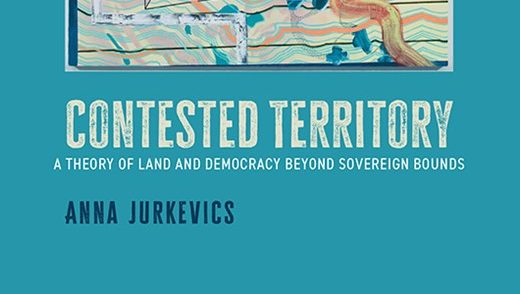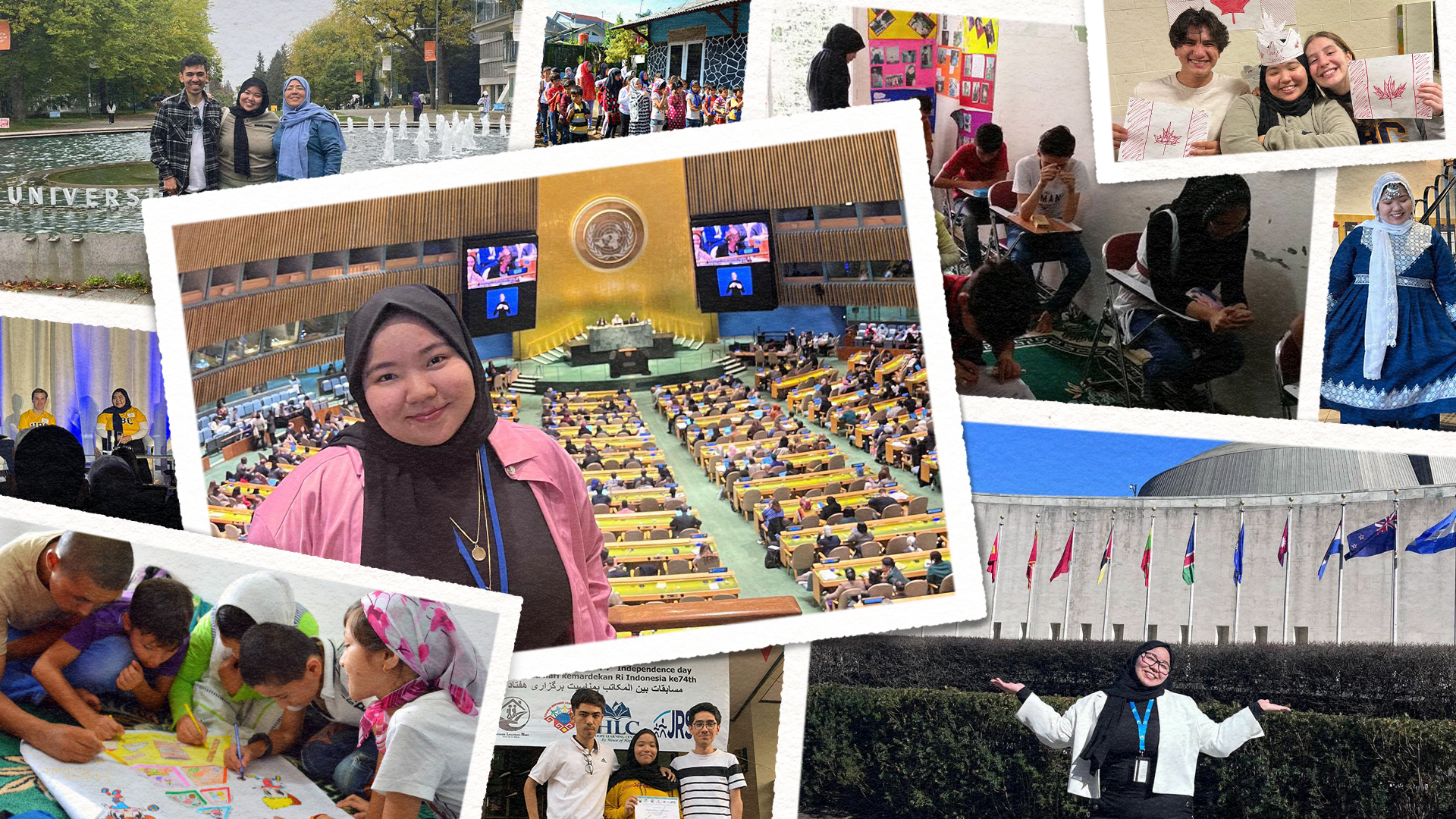UBC Political Science congratulates our award winners in undergraduate and graduate Political Science programs and the International Relations program who were recognized at a special ceremony on May 25, 2023.
Undergraduate Awards
Erik Bruendl
Political Science Gold Medal & the Department of Political Science Scholarship


Erik’s thesis receives the Carolyn Atwell Memorial Prize as the best paper on politics in the global south. His thesis explores the relationship between state repression and the emergence of civil war, hist study considers state responses to anti-government
protests across many countries over a 15-year period and finds support for the claim that state repression escalates the risk of civil war.
Erik is also the recipient of the Department’s Gold medal for the most outstanding student in our graduat
ing class. In addition to preparing an exceptional thesis, Erik graduates with the highest overall average of our degree recipients this year.
He has earned a combined honours degree in political science and International Relations and will return to UBC next year to start law school.
Scholarships have been endowed by alumni and friends of the Department of Political Science for graduate or undergraduate students in the Department. The awards are made on the recommendation of the Department of Political Science.
Jessica Wang
Jean Laponce Prize


Jessica receives the Jean Laponce Prize for the best undergraduate honours thesis. Her thesis explores the conditions that foster or hinder international cooperation during G20 summits. Her analysis emphasizes the role of G20 presidents and explores how their nationality and interests affect summit processes and outcomes. This thesis combines both qualitative and quantitative methods and required the construction of a novel and extensive original data set.
A prize has been made available through an endowment established by friends and family in memory of Professor Jean Laponce to an undergraduate honours student in the Department of Political Science who presents the best thesis. Professor Emeritus Jean Laponce joined UBC in 1956 as the university's first full-time political scientist. He directed the UBC political science honours program and left an indelible mark not only on the university, but also on the broader political science community. UBC awarded Professor Laponce with an honorary degree (LL.D. honoris causa) in recognition of his long service. The award is made on the recommendation of the Department of Political Science.
Chris Haun
Arnold Webster Memorial Scholarship
Chris graduates with a double major in political science and economics. He receives this award based on his exceptional performance throughout his time at UBC including an remarkable average of 95% in his courses this year. Chris will spend some time working before pursuing an MA in Economics and the University of Toronto and is considering a career with the public service.
A scholarship has been endowed by Mrs. Daisy Webster in memory of her husband, Arnold A. Webster, B.A. '22, M.A. '28 who as a teacher and principal in the Vancouver Secondary School system also served on the UBC Senate and as a commissioner on the Vancouver Parks Board. He served as Leader of the Official Opposition in the B.C. Legislature and as a Member of Parliament in the House of Commons. The scholarship is made on the recommendation of the Department of Political Science to an outstanding student in that department.
Harjot Kular
Walter D. Young Prize


As a memorial to Professor Walter D. Young, a distinguished teacher, scholar, alumnus, and participant in the university community, his friends and colleagues have endowed a prize to be awarded to the best student in Canadian politics. The award is made on the recommendation of the Department of Political Science.
Aleena Haq
Stewart L. Chambers Memorial Prize (Essay Prize)


A prize has been endowed in memory of Stewart L. Chambers, LL.B., M.C., a member of the university’s first graduating class in Law, whose life-long avocation was Canadian politics. The prize is made on the recommendation of the Department of Political Science, to the undergraduate student submitting the best essay in a course on Canadian government and politics. The award may be withheld if no suitable essay is submitted.
Ethan Lewis
Kevin Wells Prize
Ethan graduates with a major in political science and a minor in Law and Society. The Kevin Wells prize recognizes his outstanding work in Canadian politics courses – including a nomination for best paper on the topic – and community service including considerable volunteer work both on and off campus.
A prize has been endowed by friends to honour the memory of Kevin Wells, a UBC student in political science who died prematurely in 1981. The prize is awarded on the recommendation of the Department of Political Science to a student studying Canadian politics who best combines academic achievement and community service.
Maggie Sandland
Claire Goddard Memorial Prize
Maggie Sandland, a current IR major, receives the Claire Goddard prize for the best work submitted on the politics of the Australasian region. Maggie’s prize-winning work applies concepts and theories from peace education research to the case of the Philippines. Her work – a magazine style article and spread — is a wonderful example of what of ‘knowledge translation’ – the presentation of scholarship to a wider audience.
A prize has been endowed in memory of Claire Goddard. The award is made on the recommendation of the Department of Political Science, for the best in class essay, submitted in any course in Political Science, on the subject of Australasian affairs.
Alex Magas
Goel Family Prize in Political Science
Alex receives the Goel Family Prize in Political Science for his outstanding work in our courses. He graduates with a combined honours degree in political science and International Relations. His thesis employs a critical theoretical approach to illuminate the exclusionary purpose behind EU migration governance. He argues that refugees differently experience the temporal dimension of asylum based on their perceived familiarity to an imaginary European society. Alex will continue his studies pursuing a Masters degree on Transnational Governance this fall in Belgium.
This research employs a critical theoretical approach to illuminate the exclusionary purpose behind EU migration governance that perpetuates temporariness. Refugees differently experience the temporal dimension of asylum dependent upon their perceived familiarity to an imaginary European society. Beyond just a tool to exclude, prolonged temporariness is a sifting mechanism; refugees are more or less able to engage in life-building amidst temporariness. I examine the ongoing situation of Ukrainian refugees in the EU in contrast to refugee norms to suggest that the familiarity of the refugee to the host population informs their conditions of reception. I examine prolonged refugee precarity with a focus on its felt impacts to disrupt the normalisation of its persistence in migration governance. Temporariness is positioned as a violent condition. Unlike existing literature on the temporal dimension of asylum, I assert that safe asylum is not provided by subsidiary protection due to its precarity and impacts on life-building.
A prize has been made available annually through a gift from the Goel Family in memory of the victims of the Jewish Holocaust for an outstanding graduating undergraduate or graduate student in the Department of Political Science. The Prize is made on the recommendation of the Department of Political Science.
Department of Political Science Scholarships


Ava has earned a BA with a major in political science and minor in “Law and Society” she was nominated as an outstanding student leader in part due to her involvement with the UBC Persian students club.
Kat graduates with a combined major in Economics and Political Science she plans to apply her knowledge and skills in the tech sector with a focus on user experience design and operations.
Evan graduates with an honours in political science and completed an outstanding thesis that explores how the Supreme Court of Canada narrates the country’s ugly history of colonialism in its constitutional decisions. Through an analysis of Aboriginal rights cases, he argues that the Court has largely downplayed or erased colonialism from Canada’s constitutional memory.
Amy Topshee
Robert Lorne Stanfield Prize in Political Science
Amy graduates with a combined honours degree in political science and International Relations. Her thesis assesses NATO’s current and historical response to climate change and recommends the securitization of climate change and specific policy responses.
A prize is awarded on the recommendation of the Department of Political Science to a student with an outstanding record in this field of study. This award has been endowed by individual donors on the occasion of Mr. Stanfield's first official visit to British Columbia as Leader of the Opposition.
International Relations Awards
Sameer Esmail
Gerald N. Savory Prize in International Relations


This prize is awarded to the outstanding graduating major in the International Relations Program. Both academic accomplishments and contributions to international relations-related activities in the community have been considered in choosing the recipient. The prize is in memory of Gerald N. Savory who was Director of Public Affairs Programs in the UBC Centre for Continuing Education from 1964 to 1982 and held local and national offices in the United Nations Association of Canada.
Taylor Tang
United Nations Prize


The United Nations prize has been endowed by the late Annie B. Jamieson, B.A., LL.D. It is awarded to a student writing an essay on a problem relating to international peace and security or international cooperation in economic or social areas.
Sofia Cuyegkeng
Mack Eastman United Nations Prize


This prize is awarded in the memory of Dr. Eastman, the first Head of the History Department until 1925 when he left to become the Chief of Research in the International Labour Office in Geneva. He was instrumental in establishing the League of Nations Society of which he was Secretary. In recognition of his outstanding work and influence, the United Nations Association has endowed this prize. The prize is awarded for the best essay on a problem related to international peace and security or international cooperation in economic or social areas.
Graduate Awards
Joshua Weiner
The Frederic H. Soward fellowship


The Frederic H. Soward fellowship is granted by the department to the best graduate student in International Relations exhibiting the highest level of academic excellence.


